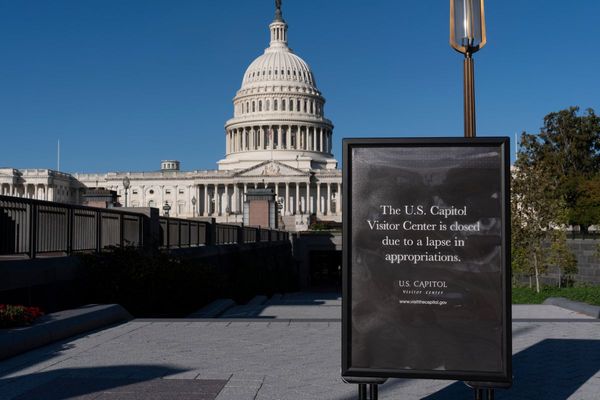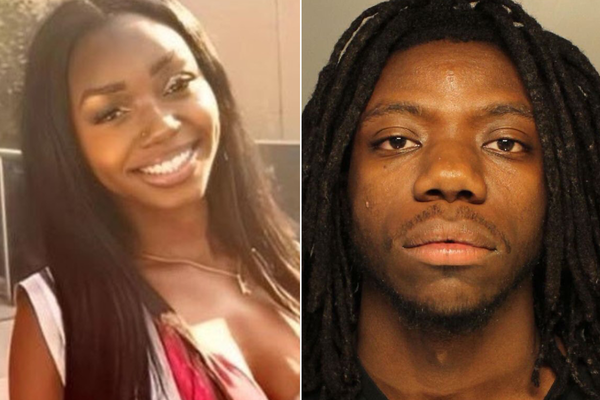(Updates with Obama comments in fourth paragraph.)
Russia and France, long at loggerheads over their approach to the war in Syria, took steps toward a united military front against Islamic State in response to the massacre in Paris and the downed plane in Egypt.
President Vladimir Putin instructed the Russian Navy to work with French vessels "as allies" on the same day he vowed revenge for the Oct. 31 downing of a Russian airliner over Egypt that killed 224 people. For the first time, he acknowledged the tragedy was a terrorist attack.
In the aftermath of Europe’s worst bloodshed in a decade, rapprochement with Russia has become a central strand of the Western response to the escalating violence and widening reach of Islamic State. French President Francois Hollande will meet with U.S. President Barack Obama in Washington and Putin in Moscow next week after calling upon both leaders to set aside their differences over Syria and Ukraine and work together.
Obama said on Wednesday while in Manila for the Asia- Pacific Economic Cooperation summit that the Sinai attack may change Russia’s approach to Islamic State. The U.S. would wait to see whether Russia devoted more airstrikes to the militant group, he said.
“It may be premature to talk about an alliance, we should probably speak of coordination,” said Thomas Gomart, director of the French Institute for Foreign Relations and a Russia expert. “It’s clear the Paris attacks have caused a diplomatic shift in President Hollande’s reading of Russia.”
No Horsetrading
France wants a joint game plan by the end of the week on how to hit Islamic State in Syria harder and more efficiently. French officials said that Hollande has no plans to raise Ukraine with Putin or cut a deal involving any form of trade-off with Syria. The Russians understood that, the officials said on condition of anonymity in line with government policy.
Russia and Western countries have been conducting separate bombing campaigns against militant groups in the ravaged nation.
The U.S. and allies have complained that Russia’s focus has been protecting the regime of President Bashar Al-Assad rather than stopping the advance of Islamic State, which has declared a "caliphate" in parts of Syria and Iraq. Russia says the West’s aversion to Assad has limited the effectiveness of its campaign against extremists.
Putin Shift?
Russia is softening its insistence on protecting Assad after realizing that Assad’s army is unable to hold areas which the Russian air force has swept clear, French officials said.
In Paris, U.S. Secretary of State John Kerry held out the prospect that a Syrian ceasefire could come within weeks, allowing a renewed focus on Islamic State. Getting the U.S. and Russia to set aside their mutual mistrust will be a challenge. On Wednesday, Obama described Russia as a "constructive partner" during Syria talks in recent weeks.
The U.S. isn’t actively cooperating with Russia because its military efforts in Syria are intended largely to support Assad, though there are signs of a shift, Defense Department spokesman Peter Cook told reporters Tuesday at the Pentagon. “Recent airstrikes have appeared to have targeted ISIL-controlled areas,” he said. “That’s a good thing.”
Islamic State’s assaults on Ankara and Beirut, as well as in Paris and Egypt, happened in swift succession and shaken the leaders into action in spite of lingering differences on goals.
Intensifying Strikes
Russia’s military on Tuesday doubled the number of airstrikes in Syria, sending long-range bombers to strike Islamic State positions, Defense Minister Sergei Shoigu said. As France carried out new attacks on the Islamic State stronghold of Raqqa on Tuesday, French Defense Minister Jean-Yves Le Drian told TF1 television the group must be fought to “annihilation.”
Signs of convergence between Putin and the West comes as Russia’s economy stagnates under sanctions imposed in response to his annexation of Ukraine’s Crimea region. After a 90-minute meeting with Obama at the Group of 20 summit in Turkey, he announced Monday he’s willing to help restructure Ukrainian debt, settling a dispute that has dogged the country’s efforts to rebuild its fragile finances.
Russia’s benchmark Micex stock-market index rose 2.7 percent on Tuesday to its highest level since February as investors bet the country’s economic isolation may ease.
Franco-Russian Relations
Franco-Russian naval cooperation highlights how relations with France have improved since hitting a nadir in the aftermath of Russia’s annexation of Crimea last year. Just three months ago, Hollande’s government canceled the sale of Mistral-class amphibious assault ships to Putin’s navy in protest at Russian actions in Ukraine.
Back in Paris, investigators are far from getting the full picture, including the total number total number of individuals involved in the carnage. A manhunt continues for at least one suspect, Belgian-born Abdeslam Salah, 26.
Police in France conducted 128 raids overnight, continuing a crackdown on suspected extremists throughout the country that began on Sunday. In Belgium, home to the suspected planner of the attacks, Abdelhamid Abaaoud, authorities raised the national terror-alert level and canceled a Belgium-Spain soccer match, citing security concerns.
And officers in the German town of Alsdorf arrested five people on suspicion of involvement in the Paris attacks. Multiple squads of police are conducting searches in the town, which is near the city of Aachen, according to local media.
In Hanover, a soccer game that Chancellor Angela Merkel had been scheduled to attend was canceled, with police saying they had received a bomb threat. The game had been intended to send a signal of solidarity after the Paris attacks.
Meanwhile, the German interior minister, Thomas de Maiziere, said a Syrian passport found next to a suicide bomber in the Paris attacks may have been planted. Reports that the identity in the passport may have been registered in several countries along the so-called Balkan route raise suspicions that it could be an attempt to implicate refugees and “make people feel unsafe,” de Maiziere said.
--With assistance from Olga Tanas, Helene Fouquet, Ilya Arkhipov, Matthew Campbell, Larry Liebert and Angela Greiling Keane.
To contact the reporters on this story: John Follain in Paris at jfollain2@bloomberg.net; Henry Meyer in Moscow at hmeyer4@bloomberg.net; Gregory Viscusi in Paris at gviscusi@bloomberg.net To contact the editors responsible for this story: Vidya Root at vroot@bloomberg.net Flavia Krause-Jackson, Ben Holland







